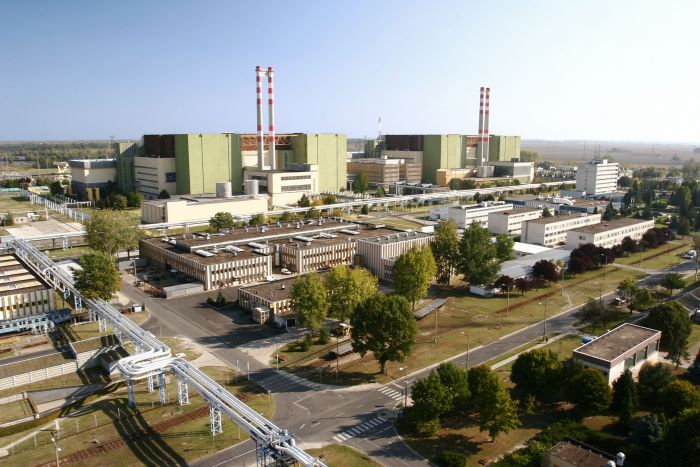Report: EU blocks Paks expansion

The European Commission has blocked Hungary's €12 billion deal with Russian energy firm Rosatom to expand the nuclear power plant in Paks, according to a report published yesterday evening in the Financial Times. The EC's nuclear regulator Euratom reportedly rejected a plan under which the nuclear fuel for Paks would be shipped from Russia exclusively.
The Financial Times reported that Hungary would have to negotiate a new deal on the supply of fuel to the plant or else appeal the EC's decision. The paper said the EC decision was sure to increase tensions between Moscow and Brussels.
State Secretary András Giró-Szász originally rejected the report and said the government demands an explanation from the Financial Times. However, Tibor Navracsics, the Hungarian EU Commissioner for Education, Culture, Leisure and Sport, confirmed the EC decision to Hungarian online daily index.hu. He reportedly said the EC has approved Euratom’s advice to block the agreement between Hungary and Russia and that, according to standard procedure, there would be no EC vote on the issue.
Hungary receives more than half of its electricity from the plant at Paks, which was built during the Soviet era. The plant is said to need an upgrade, although critics have questioned the lack of transparency behind the deal with Rosatom, which included a €10 billion line of credit from Russia.
Those critics raised the alarm after March 3, when the Hungarian Parliament voted in favor of making the Paks-related deal classified for 30 years.
Cabinet Chief János Lázár, who is in charge of overseeing the expansion, said earlier it was “entirely the same” if the Paks deal is made confidential for 15 years or 30, insisting that the entire debate is “theoretical and pointless” as there is “no single” nuclear contract in the world that has been made public.
Attila Aszódi, the commissioner in charge of the expansion, also said that making the contract details of the expansion confidential for 30 years is in accordance with both Hungarian and European Union laws, adding that the head of the National Authority for Data Protection and Freedom of Information, Attila Petérfalvy, had been consulted prior to the classification.
SUPPORT THE BUDAPEST BUSINESS JOURNAL
Producing journalism that is worthy of the name is a costly business. For 27 years, the publishers, editors and reporters of the Budapest Business Journal have striven to bring you business news that works, information that you can trust, that is factual, accurate and presented without fear or favor.
Newspaper organizations across the globe have struggled to find a business model that allows them to continue to excel, without compromising their ability to perform. Most recently, some have experimented with the idea of involving their most important stakeholders, their readers.
We would like to offer that same opportunity to our readers. We would like to invite you to help us deliver the quality business journalism you require. Hit our Support the BBJ button and you can choose the how much and how often you send us your contributions.









